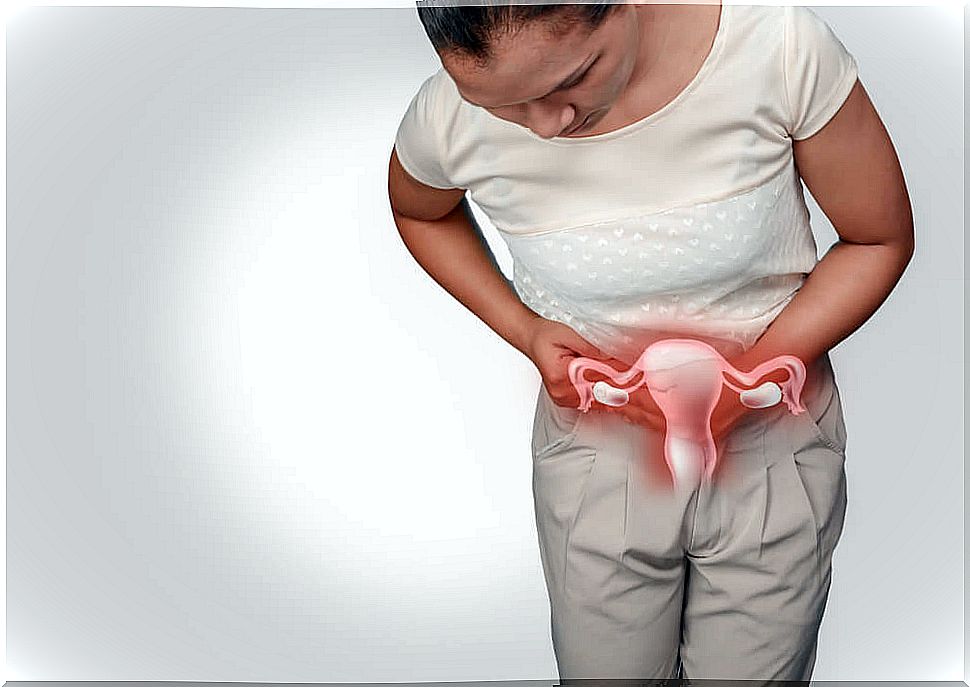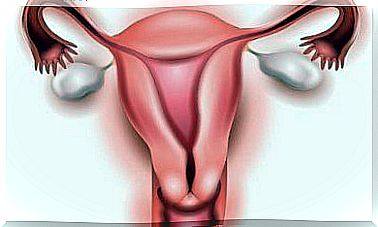Menorrhagia: Symptoms, Causes And Treatment
Bleeding during the menstrual period varies widely. Not all women have it with the same intensity or with the same duration. That’s why it’s difficult to know when it indicates a problem. Today we’ll talk about menorrhagia, its symptoms, causes and treatment.
It is important to notice the changes in this regard, as there may be some problem behind them.
But what can we consider menorrhagia? When did we start considering it a disease? Read on to get your questions answered.
Menorrhagia symptoms

As we said, we are talking about excessive bleeding. You can notice this affection with the frequency of tampon change.
If you need to change every hour, you are likely to suffer from this problem.
Of course, if this repeats itself overnight, it also has to be taken into account.
Also, when we suffer from menorrhagia, menstruation usually lasts longer than seven days.
- A normal cycle can extend up to a week, but when we cross that boundary, we should start to worry. Especially if for several days we already have a large volume of fluid.
- Consequently, a cycle like this causes tiredness and a feeling of drowning. In fact, it is not unusual to detect anemia or similar changes in women who live with this condition.
Causes of menorrhagia

The origin of such a problem is very diverse. Therefore, in certain cases, the diagnosis is complicated, as well as the structure of the treatment.
However, the following factors are pointed out:
- Hormonal misfit: estrogen and progesterone interact to cover the uterus. However, if any imbalance appears between them, the endometrium grows too much, and causes excessive bleeding.
- Dysfunction of the ovaries: it is curious, but it is possible not to ovulate and have menstruation. In these circumstances, bleeding starts and menorrhagia appears.
- Polyps: are small benign cysts that absorb blood and eliminate it.
Many of the women who have this problem have stages of menorrhagia and others in which the opposite happens.
On the other hand, cycles are more painful and we get more swollen.
- Uterine fibroids: the name itself indicates its benignity, although we refer to tumors lodged in the uterus. Like polyps, they release a lot of fluid.
- Adenomyosis: here we say that the endometrial glands attach to the uterus. Therefore, they also intensify menstrual pain considerably.
- Complication with the IUD: It is true that it is a widely used contraceptive method. However, some women do not tolerate it, which is why they find themselves with this difficulty.
- Cancer: It is the most feared cause, but the least frequent. It arises with cancer of the ovary, uterus or cervix. Just the possibility that this will happen to us is sufficient cause to inform the doctor what we are feeling.
Treatment of menorrhagia

Treatment depends on the cause of the menorrhagia, but these are the most common:
- Anti-inflammatories: Many women find relief with this simple solution. The most effective are those composed of mefenamic acid, naproxen or ibuprofen.
- Insertion of the IUD: this artifact serves to release hormones, so it is beneficial for those who have the maladjustment that we indicated above.
- Contraceptive pill: as we have already indicated, there are women who refuse the IUD, so they can use the contraceptive pill to regulate the activity of the reproductive system.
- Tranexamic acid: serves to clot the blood so that its expulsion is reduced. As it is not so diluted, we do not notice the inconveniences.
- Surgery: this is recommended for polyps, adhesions and malignant tumors. Wherever possible, it’s the fastest way to root them out.
As you can see, despite the fears that often come with menorrhagia, its causes need not be serious.
It is best to always look for a doctor, identify the specific source of the problem and treat as indicated. So, remember to try to carry out gynecological reviews, even if you are feeling well.









